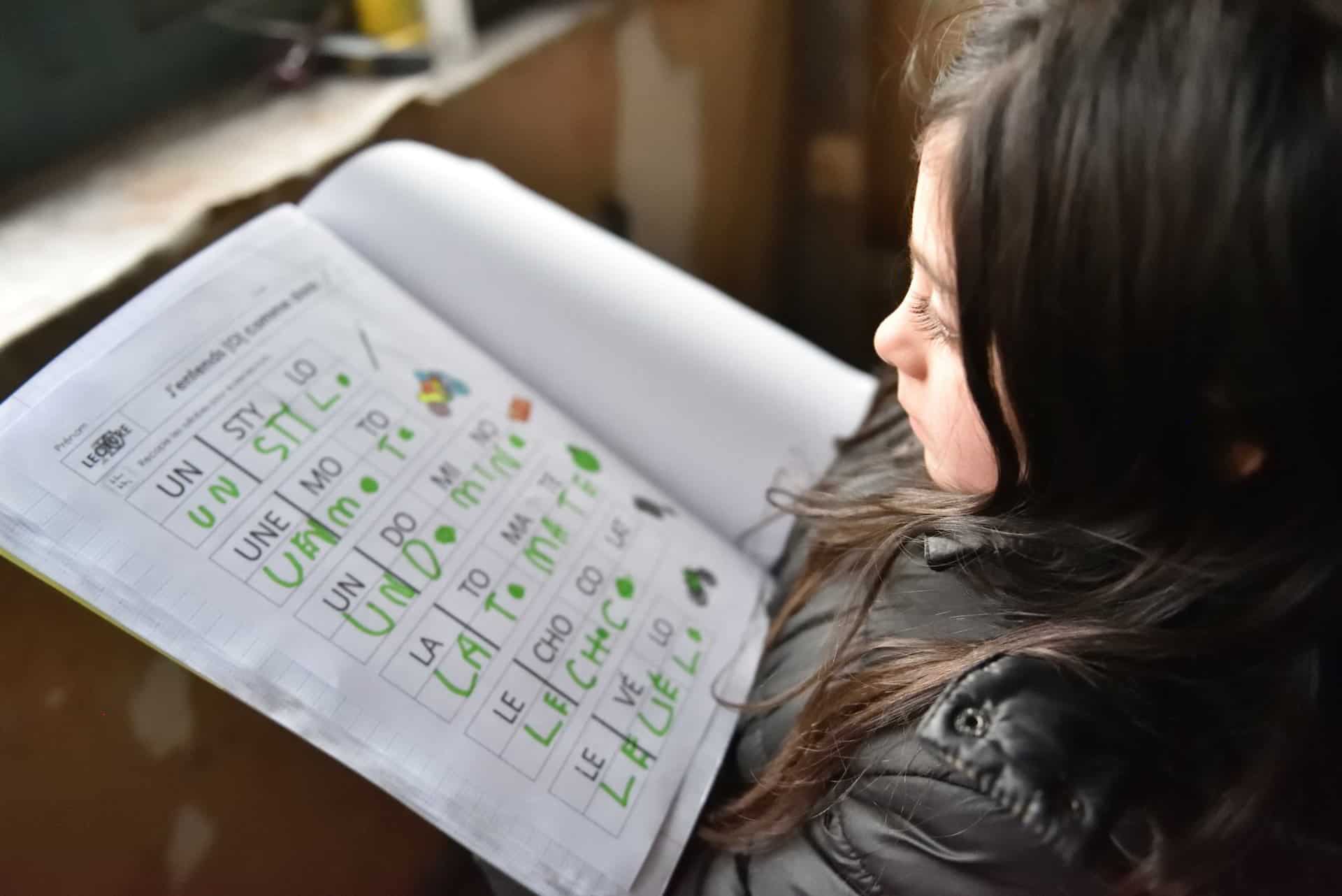Photo credit: Christine Redmond
Cởis a young woman of Hmong origin, a minority ethnic group in Vietnam. Like many women from her background, she was deprived of an education and suffered from exclusion for a long time. But despite the many obstacles she has faced, Cở has never stopped fighting and has created new opportunities for itself through vocational training.
Giàng Thị Cở, born and raised in Lao Chai - a small rural village in northern Vietnam - never had the opportunity to attend school. Like many rural women of Hmong ethnicity, a minority group, Cở married before she was 18 and her only prospects then were to raise her two children and earn a modest living through farm work.
Within ethnic minority groups, the level of exclusion is often magnified for girls, particularly in terms of education. One reason for this is the risk of early marriage and pregnancy. Indeed, according to the World Bank, over 23% of ethnic minority women aged 20-49 are married before the age of 19. Although they represent only 15% of the country's total population, Vietnam's ethnic minority groups account for 73% of the country's poorest population and live largely in remote and rural areas, with their geographical location providing an additional barrier to accessing quality education and health services.
Do not let illiteracy be a barrier
This was the case for Cở. However, after a visit to Sapa, a small mountain town popular with backpackers, Cở sought to take advantage of her rural location by trying to become a tour guide. Although illiterate, the young woman enrolled in a three-month tour guide training course to obtain a certificate; after which she began learning English for two hours a day. Her goal was to be able to communicate confidently with customers and, step by step, to be able to do so.
She started to learn several languages and charted a new course, leading her to develop career ambitions for the first time in her life. Today, after seven years, she is fluent in Hmong, Vietnamese and English and is learning basic French, German, Dutch, Spanish, Italian and Hebrew!
Cở's commitment earned her the title of "Sapa's most popular guide". As a couple with her husband, she offered tourists a complete package with homestay accommodation, home-cooked meals and guided tours of the hilly fields and mountains as well as experiencing traditional songs and dances in the evening. "I want to show how we live as a Mong family, what we eat, what we do together on a daily basis so that they can understand our culture"she explained.
Determination and courage
Unfortunately, Cở's hopes were hit hard this year. Not only did the COVID-19 pandemic disrupt travel and trade in her region, but her husband also died unexpectedly, causing her to close her business and fall back on her embroidery skills to make a living.
But, still determined to succeed and with the hope of being able to return to what she loves, she joined Aide et Action's incubator project earlier this year. " I am proud to be who I am today and I will continue to work harder, I will not give up the path I have chosen" she said. With the support of HSBC, Aide et Action's business incubator project aims to help ethnic minority entrepreneurs start their own businesses in Lao Cai and Hoa Binh provinces, Vietnam. The incubator encourages young entrepreneurs like Cở to explore new opportunities outside of traditional careers so that they can realise their aspirations as well as give new impetus to economic development.
As part of this project, Cở developed her entrepreneurship and a business plan and in early November 2020 she joined our basic business management training programme in Lao Cai, for which she received a certificate.
Leave no one behind
Supported by funding provided by the EU, we are also currently working with the North West Development Centre, a local NGO based in Hoa Binh, on a project to initiate reforms to address the needs of minority youth. The 42-month project, which began earlier this year, is expected to reach 7,165 ethnic minority youth, including 5,088 high school students, 1,441 college students and 636 youth who are not currently enrolled in formal education.
Through projects like this and our business incubator, we aim to provide lifelong learning opportunities for people like Cở and also for her children, who are now enrolled in secondary school. Cở hopes that improved access to quality education and vocational training will enable her 17-year-old son to train as a cook and follow in his father's footsteps by providing home-cooked meals in their hostel.
Through cross-collaboration with schools, businesses, local communities, private financial institutions and local authorities, we aim to ensure that minority groups are not left behind.







